Related Research Articles

Beer is one of the oldest alcoholic drinks in the world, the most widely consumed, and the third most popular drink after water and tea. Beer is produced by the brewing and fermentation of starches from cereal grains—most commonly malted barley, although wheat, maize (corn), rice, and oats are also used. The fermentation of the starch sugars in the wort produces ethanol and carbonation in the beer. Most modern beer is brewed with hops, which add bitterness and other flavours and act as a natural preservative and stabilising agent. Other flavouring agents, such as gruit, herbs, or fruits, may be included or used instead of hops. In commercial brewing, natural carbonation is often replaced with forced carbonation.
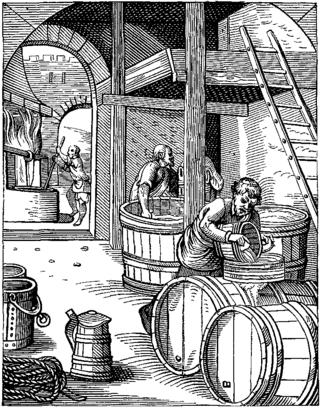
Brewing is the production of beer by steeping a starch source in water and fermenting the resulting sweet liquid with yeast. It may be done in a brewery by a commercial brewer, at home by a homebrewer, or communally. Brewing has taken place since around the 6th millennium BC, and archaeological evidence suggests that emerging civilizations, including ancient Egypt, China, and Mesopotamia, brewed beer. Since the nineteenth century the brewing industry has been part of most western economies.

Chariots of Fire is a 1981 British historical sports drama film directed by Hugh Hudson, written by Colin Welland and produced by David Puttnam. It is based on the true story of two British athletes in the 1924 Olympics: Eric Liddell, a devout Scottish Christian who runs for the glory of God, and Harold Abrahams, an English Jew who runs to overcome prejudice. Ben Cross and Ian Charleson star as Abrahams and Liddell, alongside Nigel Havers, Ian Holm, John Gielgud, Lindsay Anderson, Cheryl Campbell, Alice Krige, Brad Davis and Dennis Christopher in supporting roles. Kenneth Branagh makes his debut in a minor role.
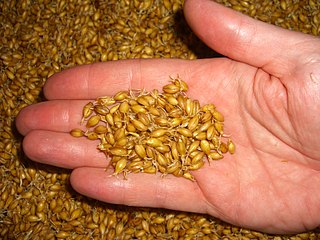
Malt is a cereal grain that has been made to germinate by soaking in water and then stopped from germinating further by drying with hot air, a process known as "malting". Malted grain is used to make beer, whisky, malted milk, malt vinegar, confections such as Maltesers and Whoppers, flavored drinks such as Horlicks, Ovaltine, and Milo, and some baked goods, such as malt loaf, bagels, and Rich Tea biscuits. Malted grain that has been ground into a coarse meal is known as "sweet meal".

A smiley, sometimes called a smiley face, is a basic ideogram representing a smiling face. Since the 1950s, it has become part of popular culture worldwide, used either as a standalone ideogram or as a form of communication, such as emoticons. The smiley began as two dots and a line representing eyes and a mouth. More elaborate designs in the 1950s emerged, with noses, eyebrows, and outlines. New York radio station WMCA used a yellow and black design for its "Good Guys" campaign in the early 1960s. More yellow-and-black designs appeared in the 1960s and 1970s, including works by Harvey Ross Ball in 1963, and Franklin Loufrani in 1971. Today, The Smiley Company founded by Franklin Loufrani claims to hold the rights to the smiley face in over 100 countries. It has become one of the top 100 licensing companies globally.
Simon Anthony Lee Brett OBE FRSL is a British author of detective fiction, a playwright, and a producer-writer for television and radio. As an author, he is best known for his mystery series featuring Charles Paris, Mrs Pargeter, Fethering, and Blotto & Twinks. His radio credits have included The Hitchhiker's Guide to the Galaxy, I'm Sorry I Haven't a Clue and Just a Minute.

Ovaltine is a brand of milk flavoring product made with malt extract, sugar, and whey. Some flavors also have cocoa. Ovaltine, a registered trademark of Associated British Foods, is made by Wander AG, a subsidiary of Twinings, which acquired the brand from Novartis in 2002, except in the United States, where Nestlé acquired the rights separately from Novartis in the late 2000s.

David Terence Puttnam, Baron Puttnam, CBE, HonFRSA, HonFRPS, MRIA is a British-Irish film producer, educator, environmentalist and former member of the House of Lords. His productions include Chariots of Fire, which won the Academy Award for Best Picture, The Mission, The Killing Fields, Local Hero, Midnight Express and Memphis Belle. In 1982, he received the BAFTA for Outstanding British Contribution to Cinema, and in 2006 he was awarded the BAFTA Fellowship for lifetime achievement from the British Academy of Film and Television Arts.

The University of Sunderland is a public research university located in Sunderland in the North East of England. Its predecessor, Sunderland Technical College, was established as a municipal training college in 1901. It gained university status in 1992. It now has campuses in Sunderland, London and Hong Kong, and has about 27,000 students.
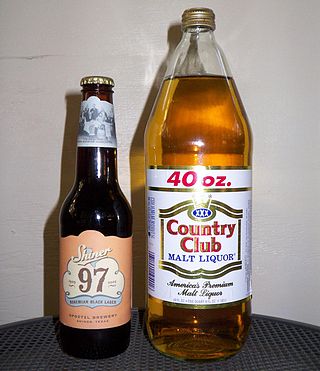
Malt liquor is a type of mass market beer with high alcohol content, most closely associated with North America. Legally, it often includes any alcoholic beverage with 5% or more alcohol by volume made with malted barley. In common usage, it refers to beers of high alcohol content, generally above 6%, which are made with ingredients and processes resembling those for American-style lagers.

Milo is a chocolate-flavoured malted powder product produced by Nestlé, typically mixed with milk, hot water, or both, to produce a beverage. It was originally developed in Australia by Thomas Mayne (1901–1995) in 1934.

ICOM Simulations, Inc. was a software company based in Wheeling, Illinois. It is best known for creating the MacVenture series of adventure games including Shadowgate.
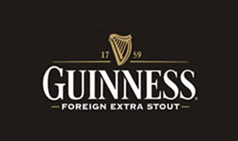
Guinness Foreign Extra Stout (FES) is a stout produced by the Guinness Brewery, an Irish brewing company owned by Diageo, a drinks multinational. First brewed by Guinness in 1801, FES was designed for export, and is more heavily hopped than Guinness Draught and Extra Stout, which gives it a more bitter taste, and typically has a higher alcohol content. The extra hops were intended as a natural preservative for the long journeys the beer would take by ship.

Lisztomania is a 1975 British surreal biographical musical comedy film written and directed by Ken Russell about the 19th-century composer Franz Liszt. The screenplay is derived, in part, from the book Nélida by Marie d'Agoult (1848), about her affair with Liszt.
David C. Reardon is an American electrical engineer and anti-abortion activist. He is the founder of the Elliot Institute, an anti-abortion advocacy group, and the author of a number of articles and books on abortion and mental health. Reardon was described in The New York Times Magazine as the "Moses" of the "post-abortion movement".
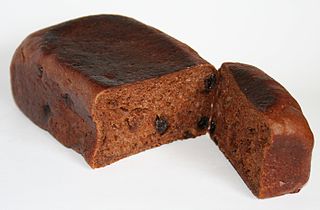
Malt loaf is a type of sweet leavened bread made with malt extract as a primary ingredient. It has a chewy texture and often contains raisins. It is usually eaten sliced and spread with butter for tea. Malt flour is sometimes used to supplement the flavour.

Uberto Pasolini Dall'Onda is an Italian film producer, director, and former investment banker known for producing the 1997 film The Full Monty and directing and producing the 2008 film Machan and the 2013 film Still Life.
Peter Scot is a brand of Indian whisky, manufactured by Khoday India Limited (KIL), and launched in May 1968. It is a flagship brand of the company and is manufactured at their Bangalore facility. In Khoday Distilleries Limited vs. The Scotch Whisky Association and Others, Peter Warren, an employee of Khoday, told the Supreme Court of India that the brand name Peter Scot was made up using his father's first name, "Peter", and his nationality, "Scot". Another factor in choosing the name was due to the British explorer, Captain Scott, and his son Peter Scott. Although the name "Scott" is spelt with two t's, it is phonetically the same as the word Scot. The brand's main competitors are Pernod Ricard's Blenders Pride and United Spirits Limited's Royal Challenge.
References
- ↑ Newnham, David. (October 23, 2002) Nursing Standard Outside in Volume 17; Issue 6; Page 31.
- ↑ "Malt Extract (Barley)". Herbdata New Zealand. 2002. Retrieved 2007-09-25.
- ↑ Molesworth - Page 94,96,241 and 391
- ↑ "Monthly Memoranda (points for propaganda)". 1926–1927. Retrieved 2007-09-25.
- ↑ Redman, Thirza (1929). "The hydrogen ion concentration and the calcium and phosphorus content of the faeces of rachitic children". Biochemical Journal. 23 (2): 256–260. doi:10.1042/bj0230256. PMC 1254019 . PMID 16744211.
- ↑ "Register of Trademarks Indexed on Class & TM No. (p.176)" (PDF).
- ↑ Freud, Clement (February 6, 1993). "Local hero with a finger in every pie; David Puttnam; Gut Feelings". The Times . Section: Features; p. SR.
- ↑ Davenport, Philippa. (February 10, 1996). "Food and Drink: Puds to make a Briton proud - Cookery". Financial Times . p. IV.
- ↑ Bovey, Shelley (January 15, 2000). "AB Flab". The Scotsman .